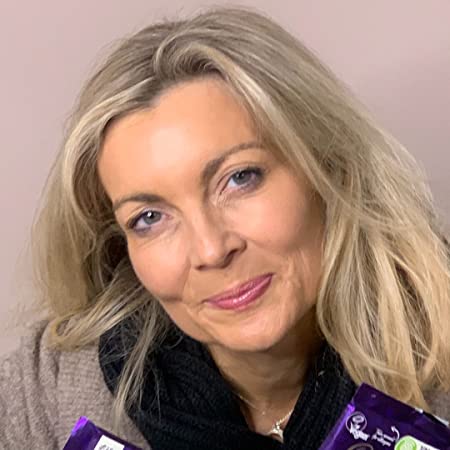Do you know the average age of menopause? Alice Smellie, co-author of Cracking the Menopause, breaks it down
Here, she chats to some of the best experts in the business.


Here, she chats to some of the best experts in the business.
Did you know that your menopause can start as early as your thirties?
Yep, you read that right. Don't worry - there's no need to panic and you might not even notice. But it's worth knowing that early menopause is a thing and so too is perimenopause - the years leading up to the final moment - which can start far sooner than you'd expect.
We've launched a Hormones channel on the Marie Claire UK site to cover all things hormone-related - including hormone replacement therapy, menopause yoga and the link between menopause and sex drive. Next up, Alice Smallie, co-author of Cracking the Menopause, talks you thorough the average age of menopause.
Average age of menopause: your guide
Menopause still has such a toxic image and is inextricably linked with visions of wrinkles, withering and retirement. In fact, it's simply a life stage, which all women will go through at some point.
"The hormones which are produced by the pituitary gland and the ovaries to trigger and maintain fertility at puberty, start to go down over a period of years," says menopause expert, doctor Tonye Wokoma, consultant in community gynaecology, sexual and reproductive health. Of course, there's far less fanfare and interest around our loss of fertility, as it only affects women. There is a great deal of sexism around the subject.
The word menopause comes from Ancient Greek - meaning 'month' and 'to pause' - referring to your periods stopping. So the menopause itself is actually a fleeting moment, occurring exactly 12 months after your last period.
Celebrity news, beauty, fashion advice, and fascinating features, delivered straight to your inbox!
When should I expect to go through the change?
So, question: do you know what the average age of menopause actually is or when you're expected to go through the change?
The official and most quoted age of menopause is 51. Although an average, it's been pretty much set in stone at around this time since records began.
Perimenopause describes the years preceding menopause and can last up to ten years before and post-menopause refers to the symptoms you experience in the years after.
Fun fact: there are 13 million peri or postmenopausal women in the UK, which is a lot of overheated and misunderstood women.
But you may experience some symptoms sooner
Only in the last few years has it been noted that the symptoms of menopause start to nudge at you sooner than expected. In a UK survey of 1,000 women, 70% of participants said that they'd experienced perimenopausal symptoms in their thirties and early forties.
Ninety per cent didn't realise what was going on - taking an average of 14 months to join the dots.
The problem with perimenopause is that symptoms can be vague and by no means obviously linked to hormones. "There are oestrogen receptors around your entire body, which is why there's such a diverse range of symptoms," says Dr Tonye Wokoma.
I found one website suggesting that there are over 100, but you had to group 'anger, irritability and temper' together for this to really ring true. The number 34 is most often cited. "Symptoms can be surprising," says Dr Wokoma. "Yes, they can include hot flushes, but they range from irregular periods to anxiety, depression, insomnia, brain fog, dry skin, dry hair, vaginal dryness and aching joints."
Don't underestimate the perimenopause
The biggest surprise when researching a book about menopause was the discovery that perimenopause is possibly the most significant time, and yet one with which most women struggle because of the lack of information available.
This is partly to do with a lack of training in the medical profession. This year a survey reported that 41% of 32 (out of 33) medical schools didn't have a mandatory menopause education programme for their students, and it's not mentioned in any of our standard (and gratefully received) health checks.
Thankfully this is changing, but far too many women are prescribed anti-depressants rather than hormone replacement therapy, or HRT. "Too many women are still failed," says Diane Danzebrink, founder of menopausesupport.co.uk and #makemenopausematter.
"They are dismissed, offered antidepressants or sent off on a round of referrals to rheumatology, cardiology and sometimes psychiatry, costing the NHS valuable time and money and causing needless distress."
It's a shame, but the fact is that we need to educate ourselves, fight for change, and be aware that the menopausal transition is far more than just a moment, and one which might start a few years before you'd expect.
Cracking The Menopause, by Mariella Frostrup and Alice Smellie is out now and available to buy on Amazon.
Alice Smellie is a British health writer and co-writer of Cracking the Menopause. She writes a monthly column for Marie Claire UK, called Discussing Menopause, where she breaks down common menopause myths with some of the best experts in the business. She's also the co-founder of the campaign group Menopause Mandate.
